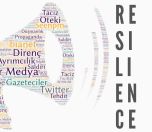Click to read the article in Turkish
In the period when the COVID-19 pandemic had just broken out, the IPS Communication Foundation/bianet and media development organizations in the Western Balkans came together as part of the "RESILIENCE: Civil society action to reaffirm media freedom and counter disinformation and hateful propaganda in the Western Balkans and Turkey" project.
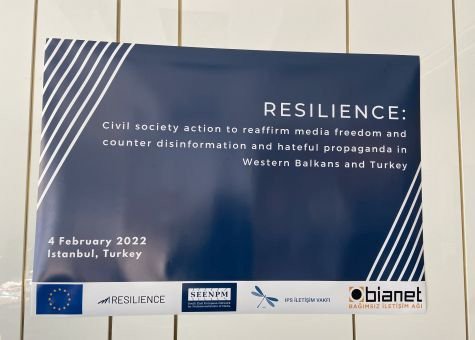
With the aim of sharing the outputs of the works that it has so far undertaken as part of this project that has set out to help "a media free from hate and disinformation" come true, exchanging opinions and discussing possible cooperations, the IPS Communication Foundation/bianet organized a meeting at Richmond Hotel in İstanbul on February 4, 2022.
CLICK - For media free of hate and disinformation
With the necessary pandemic measures taken, the meeting was attended by representatives from the Truth Justice Memory Center, Media and Migration Association, Human Rights Association (İHD), Association for Monitoring Equal Rights, International Press Institute (IPI), Media and Law Studies Association (MLSA), Pembe Hayat (Pink Life) Association, Social Policy, Gender Identity and Sexual Orientation Studies Association (SPoD), Kaos GL, Teyit, Botan International, Freedom of Belief Initiative, Human Rights School (İHOP), Idea and Art Worksop Association (FİSA) Children's Center and journalist Sedat Yılmaz from Mezopotamya Agency (MA).
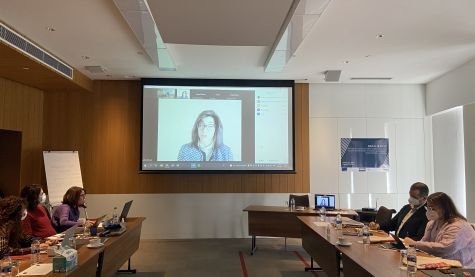
* The opening speech of the event was made by EU expert Judit Bayer.
The opening speech of the event was held by European Union (EU) expert Judith Bayer from the Schumann Fellow Institute for Information, Telecommunication and Media Law, WWU Münster. Contributing online to the event, Bayer shared information about the regulatory and self-regulatory framework against hate speech and disinformation at the EU.
Hate speech is a political tool
Bayer said that communication technologies and online networks have completely changed the structure of information, helping people to find like-minded partners, helping them to form groups and, in the meantime, helping these groups to expand. Bayer briefly added the following:
"Political communication globally uses hate speech as a political tool. Provoking hatred against an 'out-group' other than their own voters and thereby increasing the loyalty of the 'in-group'... This has always been successful. Because facts are boring and we know this from school.
"We are always alert in the face of conflict, threat and fight. And this biological side of us is abused by the new information infrastructure of social media. Is it very different from conventional media? Conventional newspapers and TVs used this human trait as well.
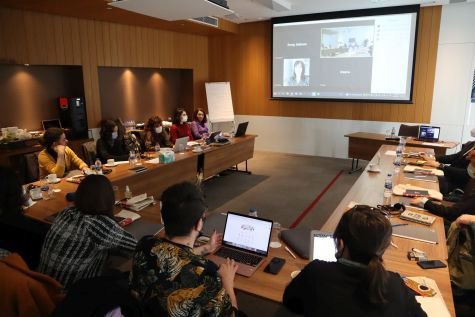
"The number of people who utter hate speech is not more than it was before (it may be more, but we do not know the exact data) but now this speech reaches out to more people; it has become more visible and it seems to gain more acceptance for this reason."
Defining the misuse of regulatory frameworks against hate speech to protect the majority and to silence the minority, Bayer used the expression of "the tragedy of hate speech regulation". In doing this, she also pointed to the existence of a "vicious cycle" in this context:
"If the politicians in power, law enforcement officials or the judiciary are the actors or accomplices of hate speech and propaganda, the chances of legal tools to help in the struggle against this are low."
What does the EU do?
In her speech, Bayer also talked about the EU regulations on hate speech and disinformation and the Code of Practice on Disinformation:
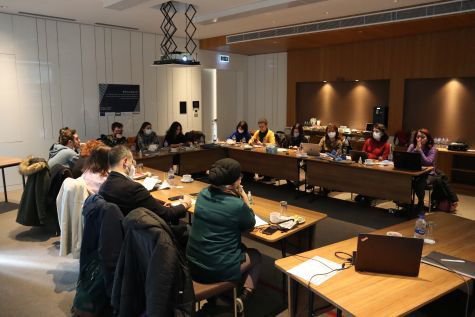
"The platforms in the EU are now regulated by the E-Commerce Directive, which orders them to remove illegal materials. There are two codes of conduct on hate speech and disinformation: Codes of Conduct against illegal hate speech and Codes of Practice against disinformation."
A positive note
Bayer concluded her speech with a positive note:
"I would like to recall that the current era is the beginning of a new industrial phase: Technology age. We are now laying the groundwork for a new structure. Unstable changes may be expected. Rapid progress may be faced with repercussions. We have already been experiencing this.
"But there will be a ripe artificial intelligence age that will develop technological services bringing autonomy and welfare to more people than before. Consider this vision while strengthening your patience."
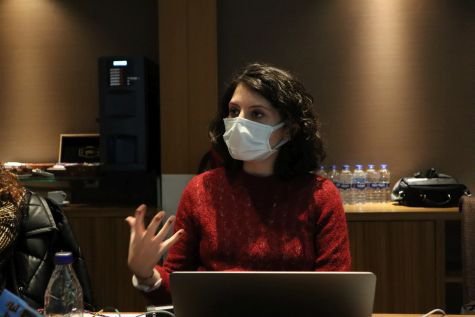
After Bayer's speech, Resilience Project Research Coordinator Sinem Aydınlı and Local News and Network Coordinator Nazan Özcan shared the outputs of the works undertaken as part of the project.
Afterwards, joining the event online, media ombudsperson Faruk Bildirci made a brief presentation about the discursive strategies of the media based on his own observations and works.
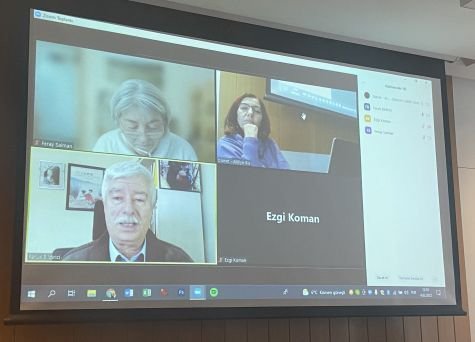
* Attending the event online, media ombudsperson Faruk Bildirici made a brief presentation about the discursive strategies of the media.
Mentioning his call for institutionalizing ombudspersonship in the media, Faruk Bildirici underlined that if media outlets engage in self-regulation and they are institutionalized accordingly, this will also have an effect on the struggle against hate speech in the media.
'Journalists should regulate journalists'
Bildirici said, "We, journalists, should definitely distance ourselves from the news while reporting on issues of hate speech and discrimination. It needs to be emphasized that the situation in question is a negative one. Only reporting and saying that 'this happened' is not journalism. This needs to be understood first. There is a serious problem about this in Turkey."
Media ombudsperson Bildirici also talked about how effective a media ombudsperson's office will be amid these discussions:
"Since the 1960s, the issue of self-regulation in the media has been debated in Turkey. Several formulations have been put forward, but none of them has been completely effective. This is what I think about the issue: Journalists should regulate journalists. And I believe that this can be done with a model of an independent ombudsperson's office.
"While I was in office as an ombudsperson at Hürriyet newspaper, I saw that the lack of editorial independence hindered ethical regulation. For this reason, I believe that an ombudsperson who is supported by all institutions but is independent from all of them will be effective.
'Amid a political transformation, digital revolution'
"We do not know whether the number of institutions supporting me will increase or not. I believe that it will increase. Because Turkey is in the middle of a political transformation and digital revolution. At such a point, I believe in the importance of this model setting an example to Turkey's media.
"Journalism in Turkey is unfortunately a scene-of-incident journalism, most of the time. When smoke comes out somewhere, we journalists also run there and forget about it. In fact, our duty should begin way before the smoke comes out. And it should continue after there is no more smoke.
"We say that there are nearly 5 million refugees in Turkey. But as far as I know, no media outlets have a journalist specialized in this field. No policy of integration is developed. The integration of these people is very important for both the citizens in the country and refugees. And journalists should also be working about this, but there is unfortunately no such work.
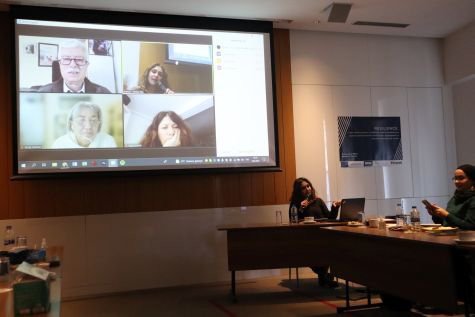
"In the period when the Journalists' Rights and Responsibilities Declaration of Turkey was issued, four media outlets had ombudspersons and there was a drop in hate speech. Why? Because the media in the 1990s was at rock bottom in terms of both ethics and journalism. Therefore, the declaration came as a godsend, I find it safe to say. There were general expressions about hate speech and discrimination in this declaration.
'It is the constitution of journalists'
"We updated the declaration in 2016. We added definitions about hate speech and hate crime, too. We set the borders as well.
"There were no sub-clauses about discrimination against women; we added them, too. The declaration became more clear. In fact, I call the Journalists' Rights and Responsibilities Declaration of Turkey the 'constitution of journalists'. There are naturally deficinces too as journalism is a dynamic profession; the declaration needs to be constantly updated.
"Besides the Rights and Responsibilities Declaration, media groups set principles as well; there was an attention to hate speech. Principles, as in the case of all laws, are written very well, texts are very good; but they remain in those texts and books on shelves. Or they remain hung on the wall. When no one struggles to put them into effect, these principles remain as they are. I may say that I am trying to bring this effort into life."
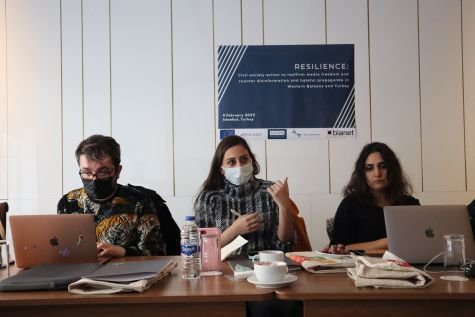
* Rights organizations talked about their works in the field of hate speech, discrimination and disinformation.
Further in his presentation, Bildirici showed examples of hate speech and discrimination in the media based on his work as a media ombudsperson. He also answered the questions of participants.
After Faruk Bildirici, representatives of rights organizations talked about their works in the field of hate speech, discrimination and disinformation. Afterwards, an exchange of opinions was made with the rights organizations to find out what can be done within this context.
About the Resilience project
"RESILIENCE: Civil society action to reaffirm media freedom and counter disinformation and hateful propaganda in the Western Balkans and Turkey" project is s coordinated by the South East European Network for Professionalization of Media (SEENPM), a network of media development organizations in Central and South East Europe.
The project is implemented in partnership with Albanian Media Institute in Tirana, Foundation 'Mediacentar' in Sarajevo, Kosovo 2.0 in Pristina, Montenegro Media Institute in Podgorica, Macedonian Institute for Media in Skopje, Novi Sad School of Journalism in Novi Sad, Peace Institute in Ljubljana, and IPS Communication Foundation/ bianet in Istanbul.
We published two reports on hate speech in Turkey in 2020 as part of the Resilience project. In the first report, we offered a summary of "Hate and Disinformation Narratives in the Online Mediascape in Turkey". In the second report, we gave examples of "Hate and Propaganda Media in Turkey" and drew attention to some policy recommendations.
"The Factsheet on the National Regulatory and Self-Regulatory Framework Against Hate Speech and Disinformation in Turkey", the third and most recent report that we have published in English as part of the project, elaborates on some legal regulations "regarding" hate crimes and hate speech in Turkey (namely the Turkish Penal Code/TCK Article 122, TCK Article 125 and TCK 126). In doing this, the factsheet also draws attention to how narrowly hate speech is defined in the country's legal framework as well as the legal loopholes that arise in this context.
In the report, we also exemplify against which specific groups (such as journalists, LGBTI+s, etc.) institutions such as the TİHEK and some laws pertaining to hate crimes (such as TCK 126) are used.
The "Resilience in Journalism" article series was also published as part of the Resilience project, featuring the media criticisms on hate propaganda and disinformation written by editors working for various independent media outlets in Turkey. (SO/SA/NÖ/SD)




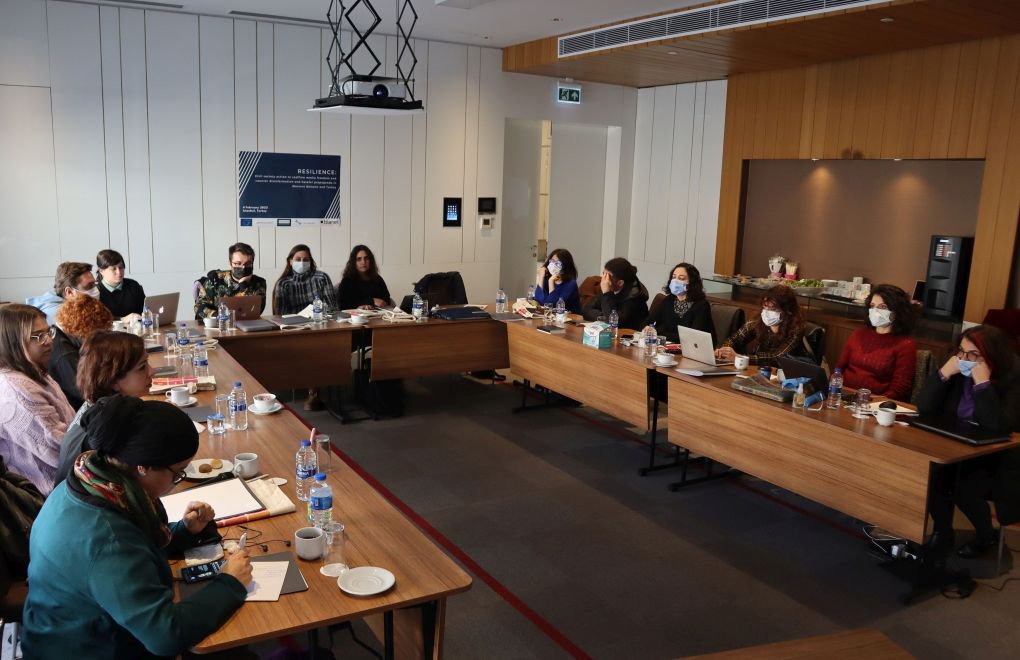
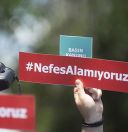
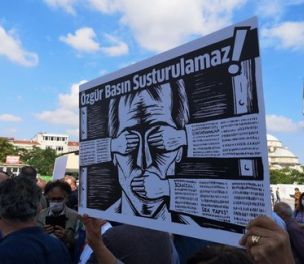

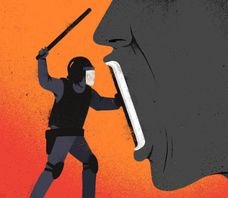
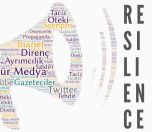

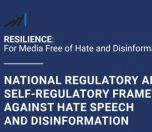
.jpg)
